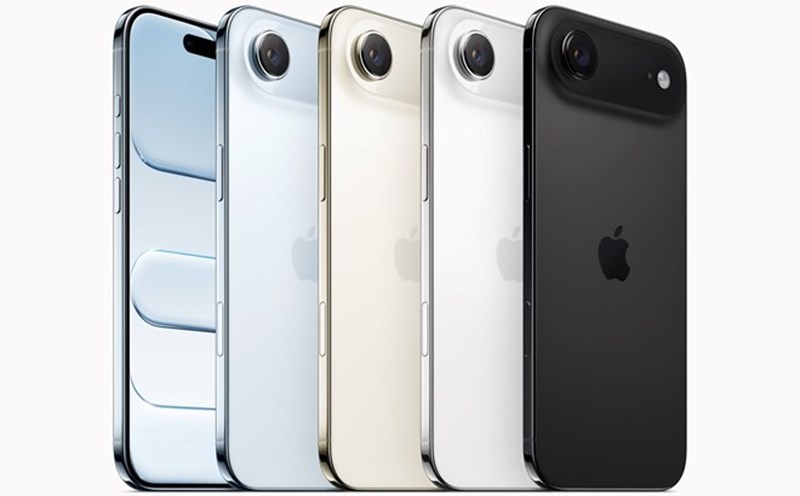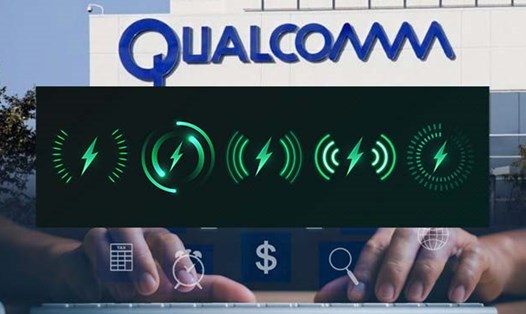Apple's iPhone 17 launch event has attracted great attention from the technology world as well as many consumers. As usual, every time an iPhone appears, it becomes the focus of global discussion, from added improvements to new designs and features. In addition to those who were excited by the appearance of a new version of the iPhone, many people expressed disappointment, saying that this product line is increasingly losing its inherent appeal.
It is undeniable that the smartphone has reached a significant level of completion. Today's models possess powerful performance, sophisticated design and a rich software ecosystem. However, it is that perfection that accidentally pushes the market into a state of satiety. As the differences between the new and old generations become blurred, attractiveness also gradually declines. In that context, people are starting to look to the future, waiting for a new leap forward in technology, where artificial intelligence is expected to play a central role.
The saturatation of smartphones
Over the years, the high-end phone market has witnessed remarkable development. Manufacturers such as Apple, Samsung or brands from China are continuously launching models with outstanding performance, increasingly sophisticated design and advanced features. Users enjoy phones that can meet most needs, from high-quality photography, smooth work processing to rich entertainment. However, when completion has almost reached its peak, the question of the real difference between product generations becomes difficult to answer.
The lack of breakthroughs is a major reason for the market's stagnation. If a few years ago, each new generation of smartphones brought significant improvements, now that is becoming increasingly rare. Recent iPhones, including the iPhone 17, have only stopped at refining processing speed, improving the camera or thinning the body. For many, those changes are not attractive enough to spend large sums of money to upgrade from old devices that still work well.
Samsung made a big splash in 2020 when it introduced the Galaxy Z Flip with a unique folding screen, marking a breakthrough. But since then, these creations have become less and less popular. Even current folding machines are gradually becoming a familiar choice, no longer too new. Meanwhile, other phone companies mainly maintain the familiar design, for example, Apple has kept the familiar camera cluster design for many years.
This makes users feel bored, because the difference between generations of the device becomes blurred. Added features, such as extremely high-resolution cameras or outstanding zoom capabilities, sometimes exceeding actual needs. Many people only care about durable batteries, smooth machines and good enough cameras, not necessarily the rarely used 200MP or 120x zoom technologies. Similarly, fast charging technology reaching a capacity of 300W sounds very impressive, but in daily life, most users only need a phone that charges quickly to be safe and stable enough.
Not only features, but even hardware is reaching its limit. Processing chip manufacturing technology has entered a difficult period, as the production process of smaller than 3nm becomes expensive and complicated. Current chips are strong enough to meet most needs, so further advances no longer make a clear difference to the user experience.
Positive signals in the technology industry
Although smartphones are gradually getting saturated, the picture of technology is not necessarily gloomy. On the contrary, the explosive development of AI is opening new doors, promising to comprehensively change the way humans interact with devices. If smartphones were the center of the digital age, now people believe that AI will become the "heart" of the next generation of devices.
The most prominent point is the appearance of new-generation virtual assistants. No longer the same as Siri or Google Assistant, these assistants are smart enough to automatically perform tasks on behalf of users. Instead of having to open an application, click and enter data, users can simply request and let AI take responsibility. From planning to meet friends, creating shopping lists, taking notes in meetings to answering quick questions, everything can go seamlessly. This opens up the prospect of people no longer needing to operate by hand, but still ensuring smooth work and life.
Not only software, but also hardware promise to change. Smart glasses with integrated AI are expected to become an important personal device. glasses can see what you see, listend what you hear, and provide immediate information. Users can refer to notes, ask the virtual assistant or look up information right during communication, without having to withdraw the phone. However, the big challenges lie in battery life, design and production costs.
Another direction comes from environmental devices, also known as environmental computers. Instead of focusing all on phones, technology is distributed throughout the living space: Smart allowances, display screens, sensors, wearables. Thanks to AI, these devices can work together to support people seamlessly, from quick answering questions for dinner to smart home control.
Smartwatches are also expected to enter a new era. Thanks to AI, each watch can become a completely personalized operating system, both supporting health and managing work. Worn on wrists, it is present regularly but does not cause discomfort, and can become a tool to coordinate many aspects of life.
Not stopping there, some startups are also developing smart storage devices, allowing users to store and retrieve daily conversations or activities. With the support of AI, these devices can turn into an expanded memory, supporting both work and personal life. Despite concerns about privacy, this idea still shows great potential.
The above technologies not only demonstrate creativity, but also clearly reflect needs: People who want devices not only serve, but also understand and accompany. As smartphones have gradually matured, these ideas bring the expectation of a new era.
In the future, smartphones may not be removed immediately, just like laptops still exist in parallel with the phone. But the central position of smartphones will probably gradually be shared, then given way to new, smarter devices that are closer to humans. That will be the time when the home, body and surrounding space all become part of the technology ecosystem, where everything knows how to listen, understand and respond. And perhaps, it is at that time that we will truly enter the next era of humanity.








